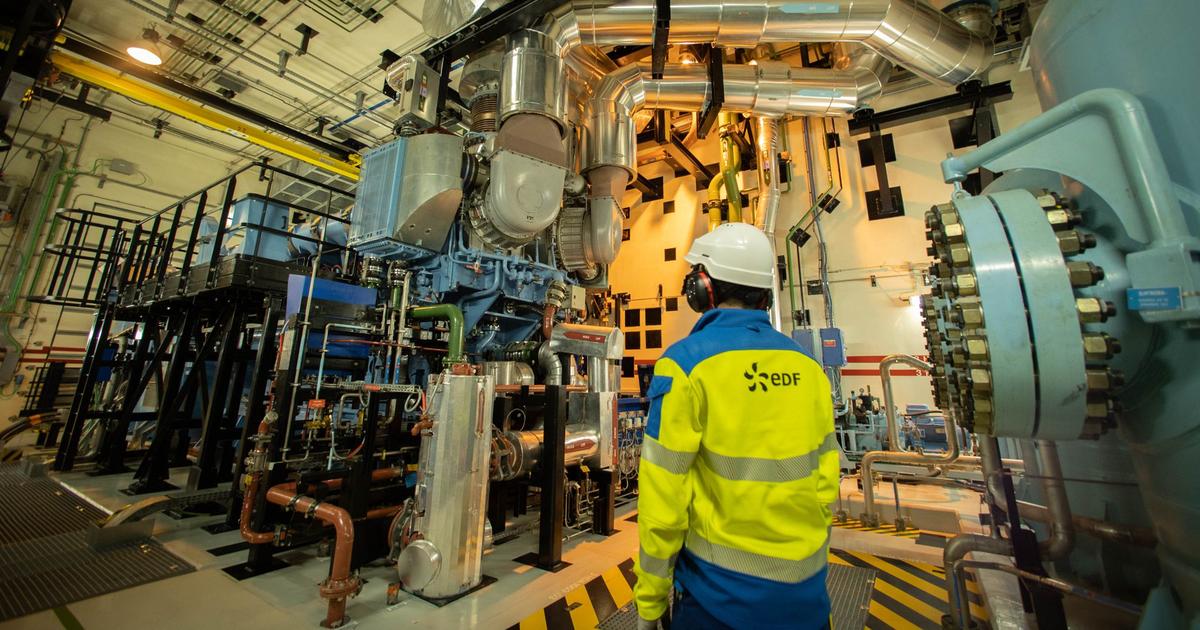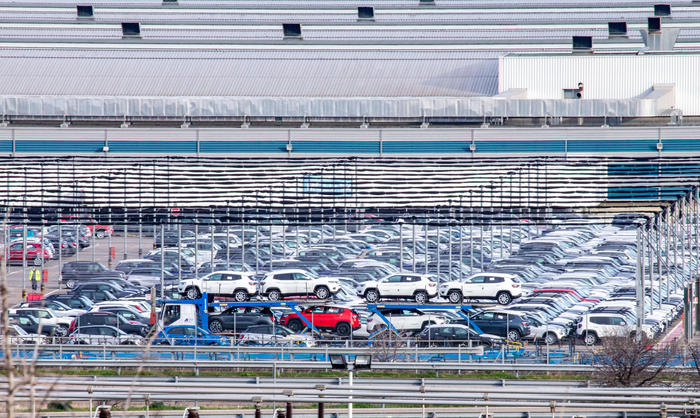After a historic jump of 397% in 2021, spot prices for natural gas in Europe have still not fallen.
From wheat to black gold, including copper and steel, global commodity markets as a whole are still in turmoil.
To discover
Taxes 2022: all about your tax return
Read also
The conflict in Ukraine could plunge Europe into severe stagflation
We are far from the
“return to normal”
that we could have hoped for a few months ago for 2022, summarizes the CyclOpe report (*).
After a year 2021 already marked by a triple
“major”
energy, agricultural and logistics crisis, the war in Ukraine has reshuffled the cards for global economic activity and the raw materials market.
To the point that the CyclOpe report, which unveils its 36th edition this Wednesday, renounces forecasts for the evolution of commodity prices.
“These exercises are becoming futile,”
recognizes Philippe Chalmin, professor of economic history, and pilot of the report.
Second year of the great global health crisis, a period marked by new variants and by a vigorous economic catch-up in many countries, 2021 suffered
“an almost general surge”
in world prices.
The CyclOpe index progresses by 49% on annual average.
And that's not counting natural gas, electricity, maritime freight, fertilizers and steel, products and services whose average increases have often exceeded 100%.
A crisis that will last
None of the crises that fueled turmoil in commodity markets last year appear to be on the way to resolution.
The uncertainties caused by the war in Ukraine weigh too heavily.
The logistical crisis, probably the least dramatic today, will not end anytime soon.
In 2021, container shipping rates, especially from Asia to Europe and North America, have quadrupled.
The rebound in Western demand has caused congestion in Chinese and North American ports, generated a shortage of ships and saturated the entire supply chain, from truck drivers to dockworkers.
Today, non-Russian hydrocarbon supplies raise other transport issues while the “zero Covid” policy in China maintains the fragility of highly globalized value chains.
Even more severe, the tension on certain agricultural products, in particular oils and cereals, could last longer (
read below
).
Last year, the crisis was
“for once, not climatic”.
It was due to China, which had become the world's largest importer of cereals.
This year, the war waged by Moscow against kyiv is preventing exports from the Ukrainian wheat and sunflower oil granary.
Worse, the conflict threatens the next agricultural production campaign.
Energy market imbalance
Another very heavy and lasting disorder: the imbalance of the energy market.
It affected gas, oil and coal, as part of an
"atypical" crisis. "In the past, it was the oil market that triggered the major energy crises"
while in 2021,
"gas has was the deciding factor.
Whether in Europe or Asia, gas prices have quadrupled on average.
And
“part of the rise”
crude oil prices in 2021 is linked to this surge in prices, generated by climatic, economic and geopolitical factors.
Hydroelectric production in China has been affected by the drought and wind power in Northern Europe by the lack of wind.
The post-Covid economic recovery has also boosted the need for the transition energy that natural gas has become, the report further points out.
Read also
Gas, aluminum: the war in Ukraine pushes raw materials to new records
The crisis is far from being resolved, especially for Europe which, under the sanctions against the war, will cut itself off from Moscow's oil (about a quarter of its imports) and could do the same for gas (45 % of EU imports).
“The beginning of the conflict is too recent to pretend to draw the energy world which will result from it”.
But,
"the energy consequences of this conflict will be lasting, partly irreversible, and will not be confined between the Atlantic and the Urals",
predict the authors of the report.
According to them, some certainties emerge.
The price of fossil fuels transported to Europe will be higher, Europeans having to obtain supplies elsewhere, over longer distances and via more complex logistics chains due to the use of liquefied natural gas (LNG).
In the short term,
“the imperative of security will undoubtedly lead to extending the use of coal”
which will become more expensive.
And that will weigh on climate change.
Good news, however.
With a higher price of carbon products and a worsening supply risk,
"decarbonization solutions will gain in competitiveness",
want to believe the authors of CyclOpe.
(*) Published by Economica.








